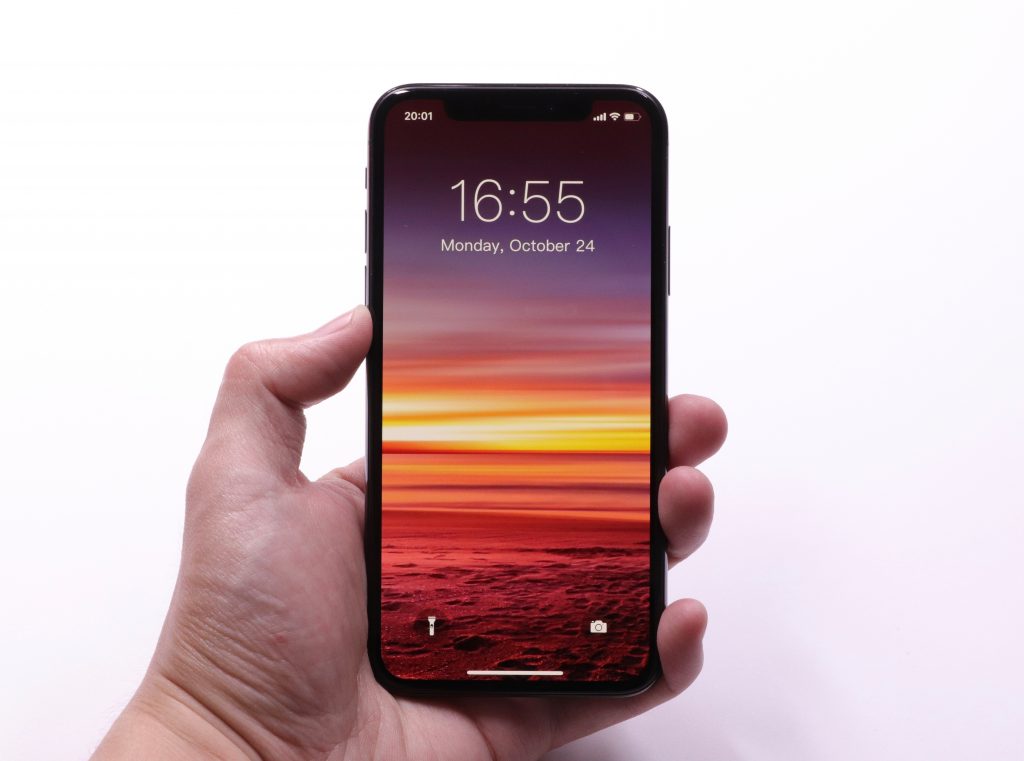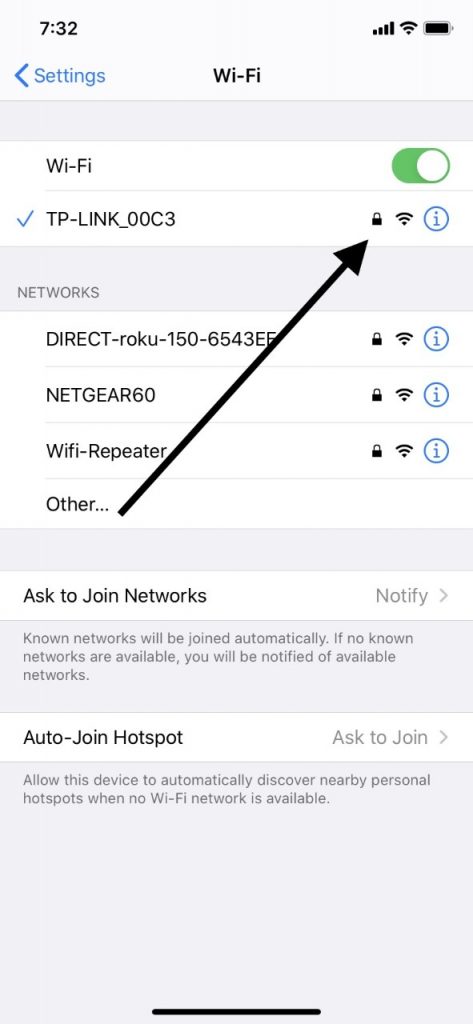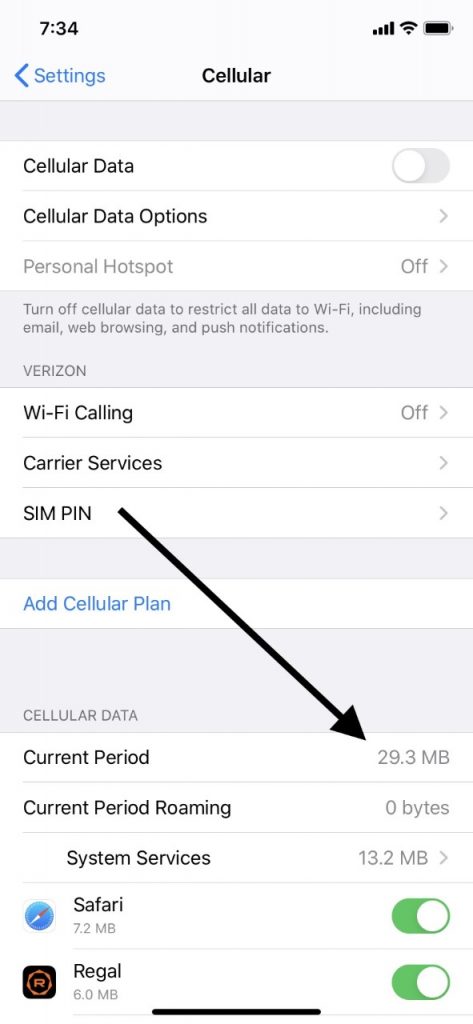If you’ve owned an iPhone for a while, or you just got a new one, you may be concerned with data usage. Unless you got an unlimited data plan, you have a limited amount that you can use within a designated billing period. If you overshoot the allotted amount, then you’re going to get hit with overage charges. Because of that, it’s vital that you know how to check the amount of data that you are using. Let’s talk about the benefits of the different kinds of data plans, and we’ll also go over how you can keep track of your data consumption.

Which Activities Consume Data on Your iPhone?
There are several different things that you could be doing that result in your iPhone consuming data. You might be listening to music, playing games, or watching videos. You may be using apps or browsing online. Any of those things could be consuming data, or they might not. It all depends on whether you are connected to Wi-Fi or a cellular network.
If you are at home and you have Wi-Fi set up, then you can instruct your iPhone to connect to your Wi-Fi network. You do this by tapping Settings, then Wi-Fi. You should see a checkmark next to your preferred network. You will also know that you’ve been successful when you see the Wi-Fi radio signal on the top of the display. It is in the shape of a baseball diamond. If you don’t see that, and instead you see LTE, 3G, 4G, or something else, then that means you are connected to mobile data.

Checking Data Usage on an iPhone
If you want to know how much data you are using, you can do so by going to Settings, then Cellular. You can then scroll down until you see an amount of data that is displayed under Cellular Data Usage for the Current Period.

For instance, it might say something like 28.1 MB. That’s how much you’ve used so far within your billing cycle, which is one month with typical phone plans. If you purchased an unlimited data plan, then it won’t matter how much data you’re using, because you’re already paying a set rate.
Is It Worth It to Get an Unlimited iPhone Data Plan?
You might be wondering at this point whether you’ll be better off, from a monetary standpoint, getting an unlimited data plan, or sticking to a plan where you get a set amount every month. There are a few mitigating factors that may determine which is the better move for you.
One thing you’ll wish to consider is whether you’re the only one on your plan or if you have a family plan. Let’s say that you have a family plan with you, a spouse or partner, and a couple of kids. Maybe the kids are teenagers, and they’re constantly texting with their friends. There’s no denying that you’re going to be using a lot of data. You might be getting hit with overage charges every month, which can be frustrating.

If that’s the scenario in which you find yourself, then you might want to go ahead and get an unlimited plan. It’s more expensive than having a set amount of data to use every month, but that way, you have no danger of going over, and you know exactly how much it’s going to cost you every billing cycle.
The time when you’ll want to stick with a limited data plan from your carrier is if you’re the only one on the plan, and you seldom use your iPhone when you’re out of the house. If you and whoever else on the plan is good about sticking to Wi-Fi networks and limiting data usage when you’re out and about, then you can probably get away with a limited data plan and save some money.
What Can You do if Your iPhone is Using Too Much Data?
There are a few things that you can do to try and prevent too much data usage on your iPhone. Even when you’re out of your house and away from your preferred Wi-Fi network, you can still connect to other networks if you’re in a place that has one.
There may be Wi-Fi at your job, for example, and you should be able to get the password for it. Then there are public places like some fast-food restaurants, coffee shops, and libraries that have Wi-Fi as a public service. You can ask for the password, or they might have it posted somewhere conspicuous.
The one thing to watch out for is using a public network and accessing sites with your sensitive information on them. For instance, it would be best not to check bank account statements, use your credit card to pay for things, or any other financial matters when you’re out in public. You can’t be sure of the security of a public network.
Limit Data Usage on Your iPhone from Streaming Music and Videos
If you’re out in public and you’re bored, then the urge to stream music and videos is a natural one. Maybe you’re waiting for public transportation to arrive, and you’re watching some YouTube videos or listening to streaming music via Pandora, Spotify, or one of the many other services that exist these days.

The only problem there is that you’re using data. If you did not get an unlimited data plan, then you’re going to be burning up your allotted amount very quickly. There might be a week or a couple of weeks left in your billing period, and you’ll get a notification from your service provider that you’ve gone over your data allowance.
Since streaming videos consumes more data than just about anything else you can do on an iPhone, that’s what you need to watch out for the most. Rather than streaming, if you’re going to be out somewhere and you know that you’ll want to watch TV or movies, you should try to download whatever it is that you want to watch beforehand. You might rent or purchase a movie from iTunes and have it downloaded and ready to go on your phone. That way, you won’t be consuming data by streaming it when you don’t have access to Wi-Fi.
Monitor Your iPhone App Use for Data Consumption
The one other thing that you can do to keep from burning through your data is to close out any apps when you are not using them. There are some apps that use a lot of data when you’re not connected to a Wi-Fi network, and they keep running in the background when they are open, even if you are not actively using them.
A couple of times a day, you can close out your apps by double-tapping the Home button and swiping up for each of the app previews that come up on your iPhone’s screen. Closing the app clears it from the application memory. This will stop it from using that precious mobile data in the background.

The best way to keep control of your data usage is to check periodically to see how much you have left. Apart from that, take some time to think about whether you want to go with an unlimited plan at this point in your life. If you do decide to accept a plan that has data limits, follow the tips we mentioned, and hopefully, you won’t be hit with overage charges anymore.






